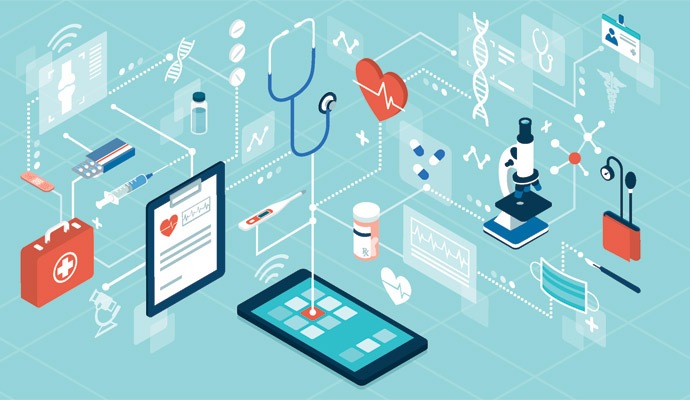Mobile Apps Leverage Artificial Intelligence to Monitor COVID-19, COPD
New research shows that two new mobile apps are using various artificial intelligence features to successfully detect and manage diseases such as COVID-19 and COPD.

Source: Getty Images
- Research from the Maastricht University Institute of Data Science and the University of Bristol described new mobile apps that are using artificial intelligence (AI) features, such as voice analytics and symptom tracking, to track and treat COVID-19 and chronic obstructive pulmonary disease (COPD).
As AI use has grown during the COVID-19 pandemic, researchers are continuing to examine how medical conditions can benefit from its implementation.
Presented at the 2022 European Respiratory Society International Congress, researchers shared details regarding the mobile phone apps, one of which uses vocal patterns and AI to track COVID-19. This is possible because of the effect the disease has on the respiratory system and vocal cords.
According to researchers at the Maastricht University Institute of Data Science, the app is 89 percent accurate. They concluded this following a test trial that included 893 recordings from a group of 4,352 patients, 308 of whom had tested positive for COVID-19.
The participants were asked to provide basic information about demographics, medical history, and smoking status, and to record some respiratory sounds, including coughing, breathing deeply, and reading a short sentence on the screen. The app uses Mel-spectrogram analysis, a voice analysis technique, to identify COVID-positive patients.
“These promising results suggest that simple voice recordings and fine-tuned AI algorithms can potentially achieve high precision in determining which patients have COVID-19 infection,” said researcher Wafaa Aljbawi from Maastricht University, in a press release. “Such tests can be provided at no cost and are simple to interpret. Moreover, they enable remote, virtual testing and have a turnaround time of less than a minute. They could be used, for example, at the entry points for large gatherings, enabling rapid screening of the population.”
Another group of researchers shared details regarding an app called myCOPD that can use AI to detect COPD-related risks. A PhD student at the University of Bristol engineering program, Henry Glyde, discussed how COPD patients often face issues related to flare-ups which can be very dangerous.
After collecting 45,636 medical records from 183 patients, Glyde and other researchers trained several AI models to provide flare-up predictions up to a week before a self-reported flare-up or exacerbation.
“The most recent AI model we developed has a sensitivity of 32 percent and a specificity of 95 percent. This means that the model is very good at telling patients when they are not about to experience an exacerbation, which may help them to avoid unnecessary treatment. It is less good at telling them when they are about to experience one. Improving this will be the focus of the next phase of our research,” said Glyde.
In the past, mobile apps have been used to treat and track various conditions.
A study published in July described how a smartphone app known as SkinIO could detect skin cancer among older patients. The app captured and analyzed images of the skin, informing physicians of suspicious images.
Another study published in June described a smartphone-based tympanometry system that tested ear function.
Also, in August, researchers from the University of Florida created an AI algorithm to track COVID-19 variants.
